Homeschool curriculum shopping? I am sharing some early elementary homeschool curriculum ideas for gifted and twice exceptional students. These suggestions are based on the Charlotte Mason method of homeschooling. 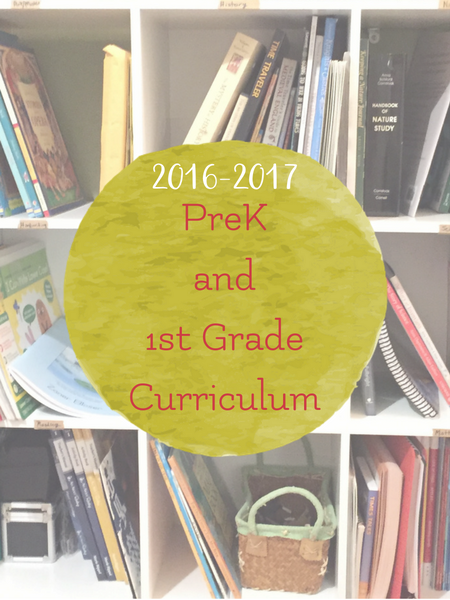
Gifted Early Education for Homeschool
Homeschooling allows us to create an environment that allows our children to thrive, to develop a love of learning, and to explore the world in the way that suits them best. The ideal of a carefully crafted curriculum and learning environment and the reality of life are often two very different pictures. One looks like Waterlilies while the other strongly resembles The Scream.
If I have learned anything parenting and homeschooling my two boys, it is this; Flexibility is key. I can make all the plans I want, but the Lord directs my path and the needs of my children are not set in stone.
Mr. T is considered twice exceptional, which means he is gifted with learning challenges. Mr. F has not been tested for giftedness, but from all indicators, he’s following in his brother’s footsteps and then some. There is not an “across the board” set of books, curriculum, or methods that work for gifted and twice exceptional students. The curriculum we have set for this year is based on what works for us and on where the boys strengths and weaknesses lie. And just generally awesome curriculum choices. It is also subject to change as the year progresses.
And friends, I’m so excited! This is by far my favorite year yet. Without further adieu, here are our homeschool curriculum preschool and 1st-grade year.
Charlotte Mason is Awesomesauce
We follow a mainly Charlotte Mason approach. My Charlotte Mason Planner is a valuable asset to our homeschool because it keeps me on track and following the rails I need to follow in order to lead the children. These rails of habit, study, and learning move us all forward on our path of learning together as a family.
Charlotte Mason advocated for gentle learning, but don’t mistake that for an “easy” education. Her methods allow for an incredibly well-rounded liberal arts education from the very beginning. Adapting curriculum chosen with the Charlotte Mason method in mind has allowed us to play to the strengths of Mr. T and Mr. F while supporting their areas of struggle.
It is truly a blessing to be able to feed into Mr. T’s voracious appetite for history, music, art, and hands-on science while simultaneously working through the struggles in reading and handwriting due to auditory processing, suspected dyslexia, and dysgraphia. Mr. F has a love of all things nature, especially animals, and he is very adept at logic puzzles, math, and physical feats which is why he is learning parkour principles at 4. He struggles with apraxia and sensory processing disorder so we incorporate many directed movement activities during our school time like the Get The Wiggles Out game.
Science and Nature Study
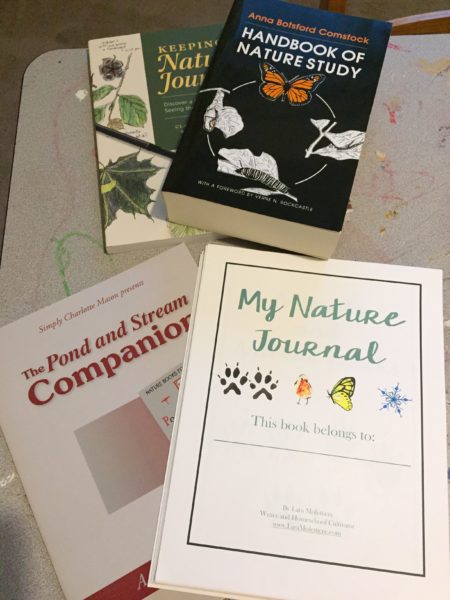
Our science this year is centered around the Pond and Stream companion (it follows Pond and Stream book) from Simply Charlotte Mason. We are utilizing The Handbook of Nature Study, My Nature Journal notebooks, and are using Keeping a Nature Journal as a resource for making our nature journals both beautiful and functional. The habits of excellence and observation are our focus for our nature journals this year.
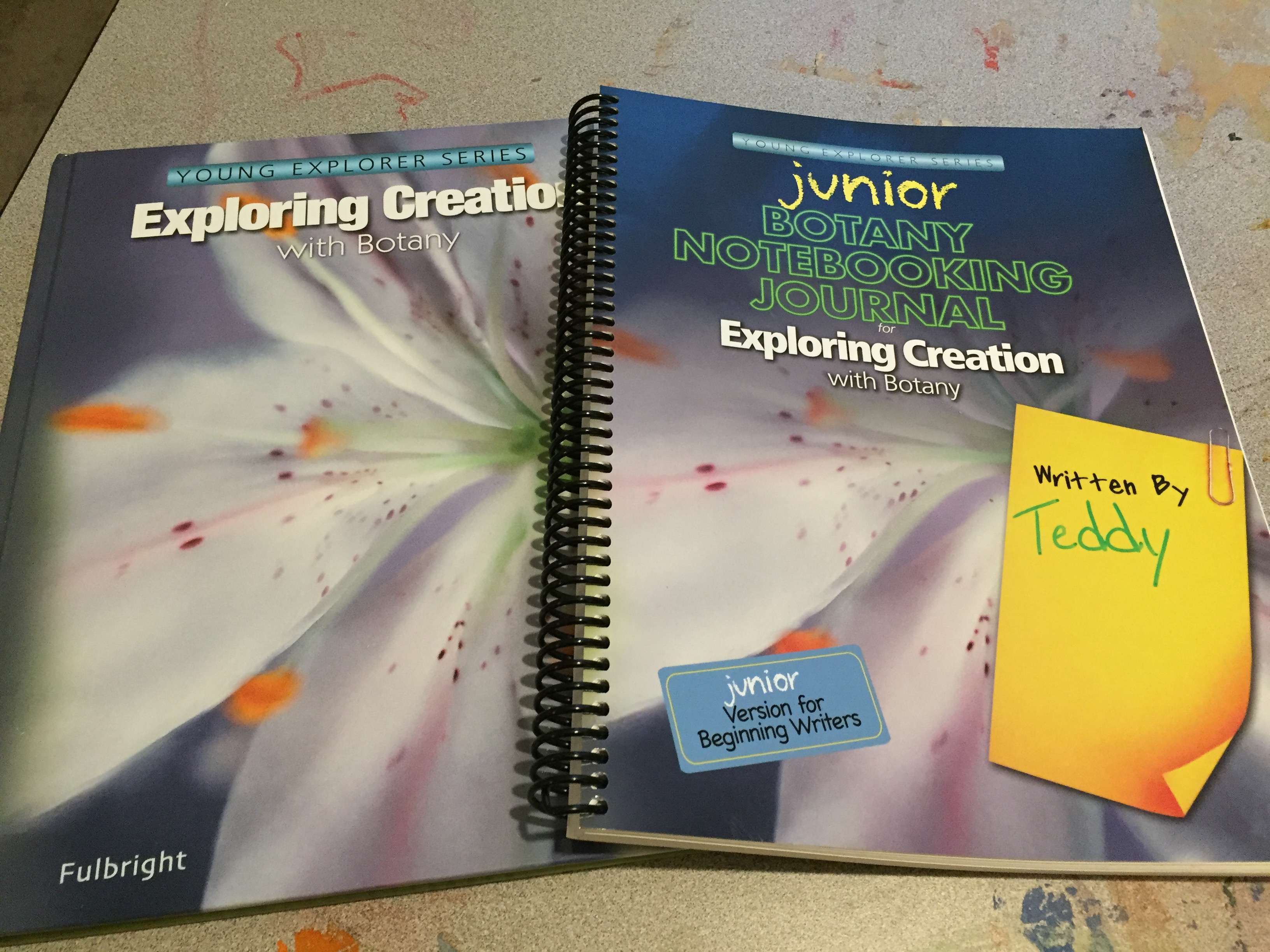
We are including our Apologia Botany once a week to finish what we didn’t get to last year and to do more of the experiments. This is a stellar curriculum if you are more inclined to a text book style curriculum and the recommended experiments are fantastic. It’s very well done. The Junior Notebooking Journal is fantastic!

Science is one of Mr. T’s loves, so we have many additional books, Magic School Bus kits, and a wonderful microscope for really digging in. Mistakes that Worked is a must have book if you have inventors or creators in your home! It tells all about how some things happened purely by accident when something went “wrong”. Chocolate Chip cookies may be the best mistake ever.
Living Math
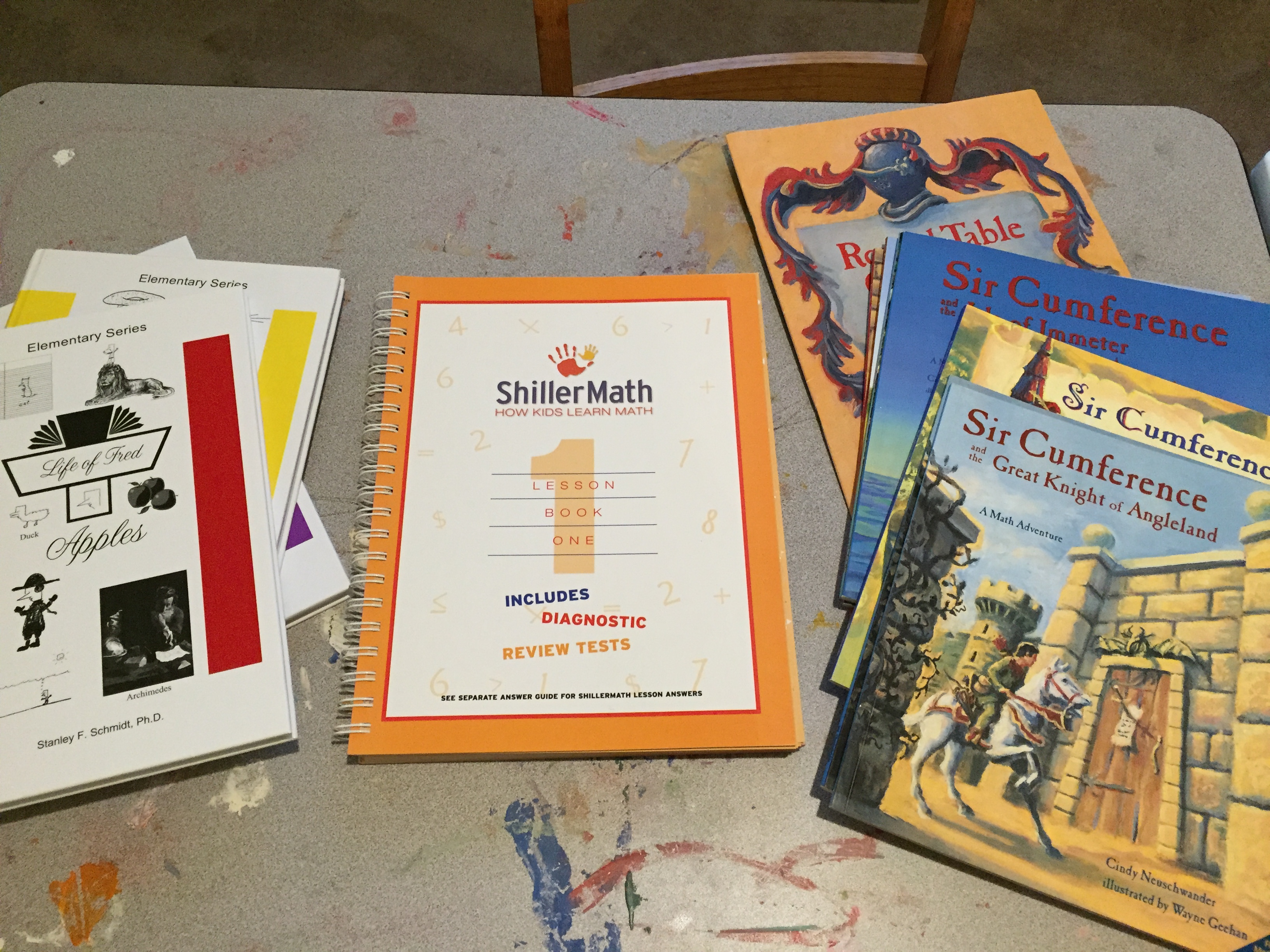
Our math curriculum this year is Shiller Math. It is Montessori based. I had seen their products several times over the last two years and jumped on board this summer. After deciding to keep Mr. F home instead of continuing his 2 half days a week at preschool this year, I knew I needed as many subjects as possible for the boys to do together. We do between 1 and 4 lessons a day depending on the boys.
Mr. F is a math guru. He loves numbers and has simple addition and subtraction down. This means I can do the same math lessons for both boys at the same time since Mr. T isn’t as fond of concrete math, though he is great at abstract concepts and geometry. Which is why we do Shiller Math 4 days a week and add in Sir Cumference and Life of Fred as enrichment. Both boys love Fred and Kinji and enjoy the adventures of Radius and the Round Table Geometry activities.
Poetry, Shakespeare, and Reading

We are working on the habit of memorization with scripture and poetry this year. A Child’s Book of Poems is a literary delight. It’s perfect to read together during tea times, as well. Encouraging a love of true, noble, beautiful words is something I believe to be decidedly important. I want the boys to have a deep well of noble knowledge from which they can retrieve appropriate sentiments when they are older. Memorization and recitation are key to this accomplishment.
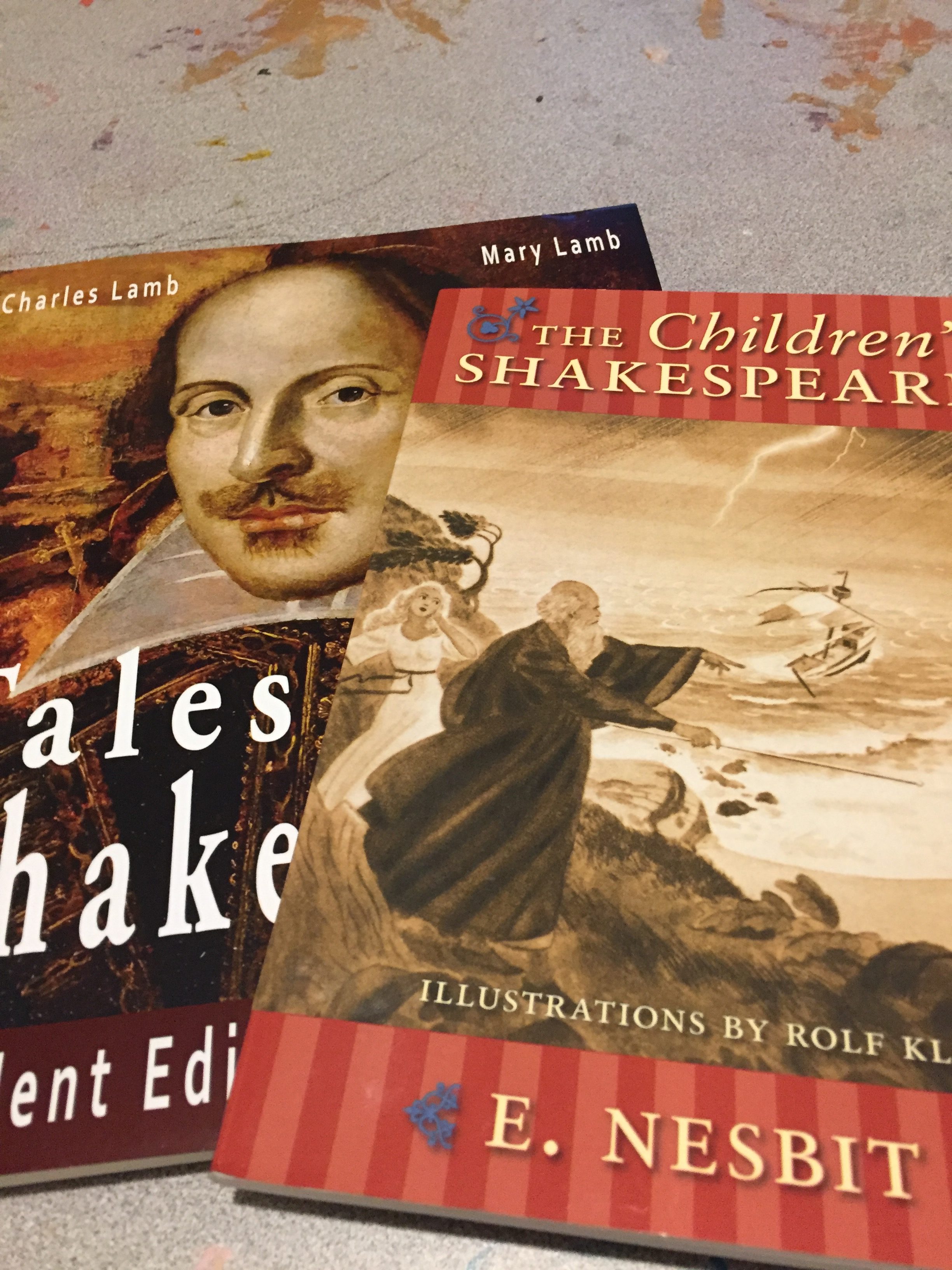
Shakespeare is not a subject to be feared or ignored or dreaded. There are many wonderful ways to introduce even the youngest students to The Bard. The Children’s Shakespeare and Tales from Shakespeare are the two we will be using for the next few years. The stories are told with all the charm of the originals, but in easier to understand language.
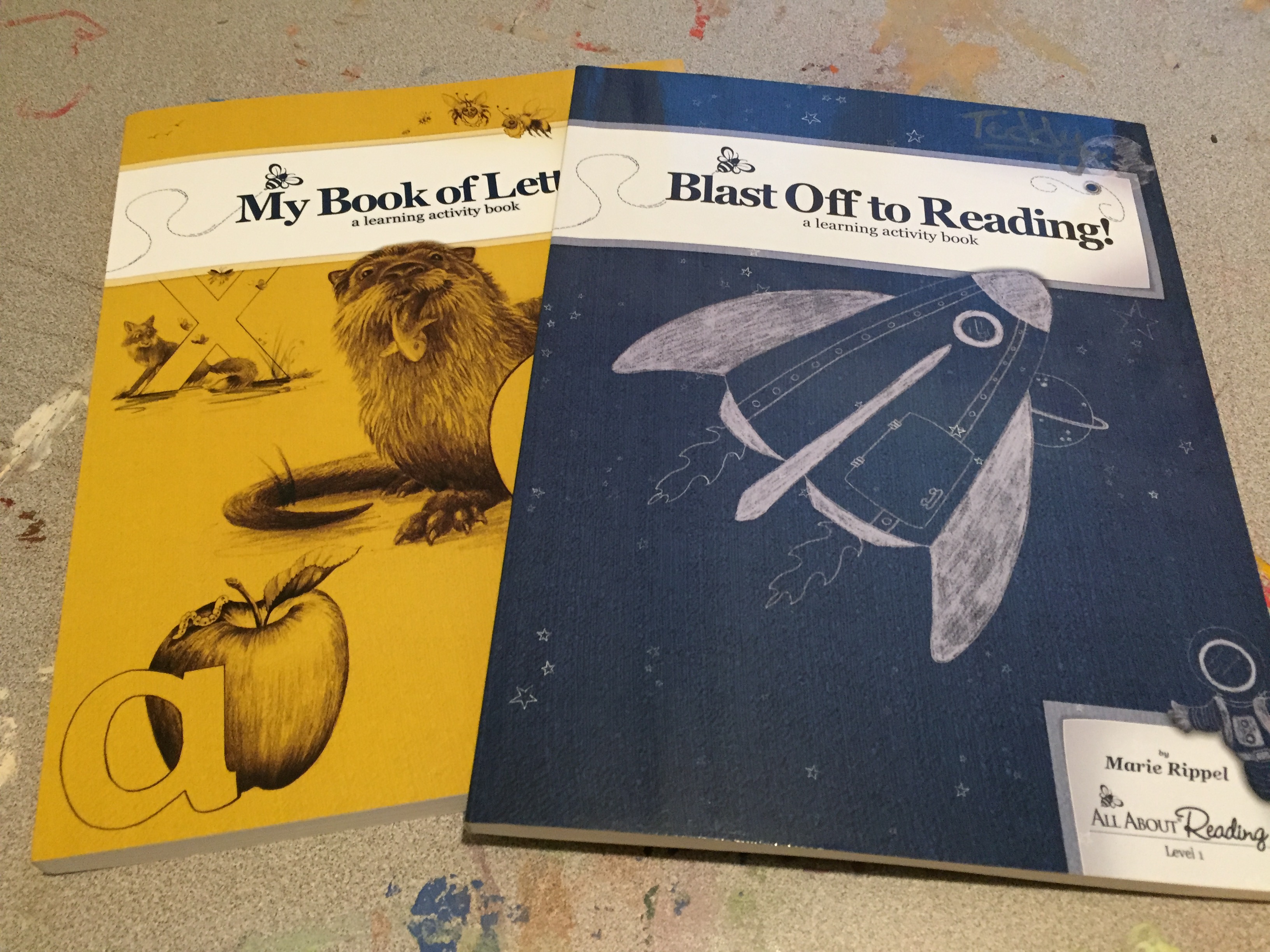
For reading, we are utilizing All About Reading pre-reading and Level 1. This program is Orton-Gillingham based, which is recommended for children with Apraxia, with dyslexia, or that just generally struggle with reading or learn best through hands-on multi-sensory learning.
We have taken our time going through level 1 with Mr. T because of his challenges, and because at 5 he just wasn’t ready to really dive in. Now that he is more interested and able, we are progressing much faster with the lessons than we were last year.
Homeschooling allows us to work at his pace. While we are doing opera studies and electronics building at a 4th grade level, we can work on his beginning reading skills, too. Homeschool is such a blessing for asynchronous development!
Geography and Map Tracing
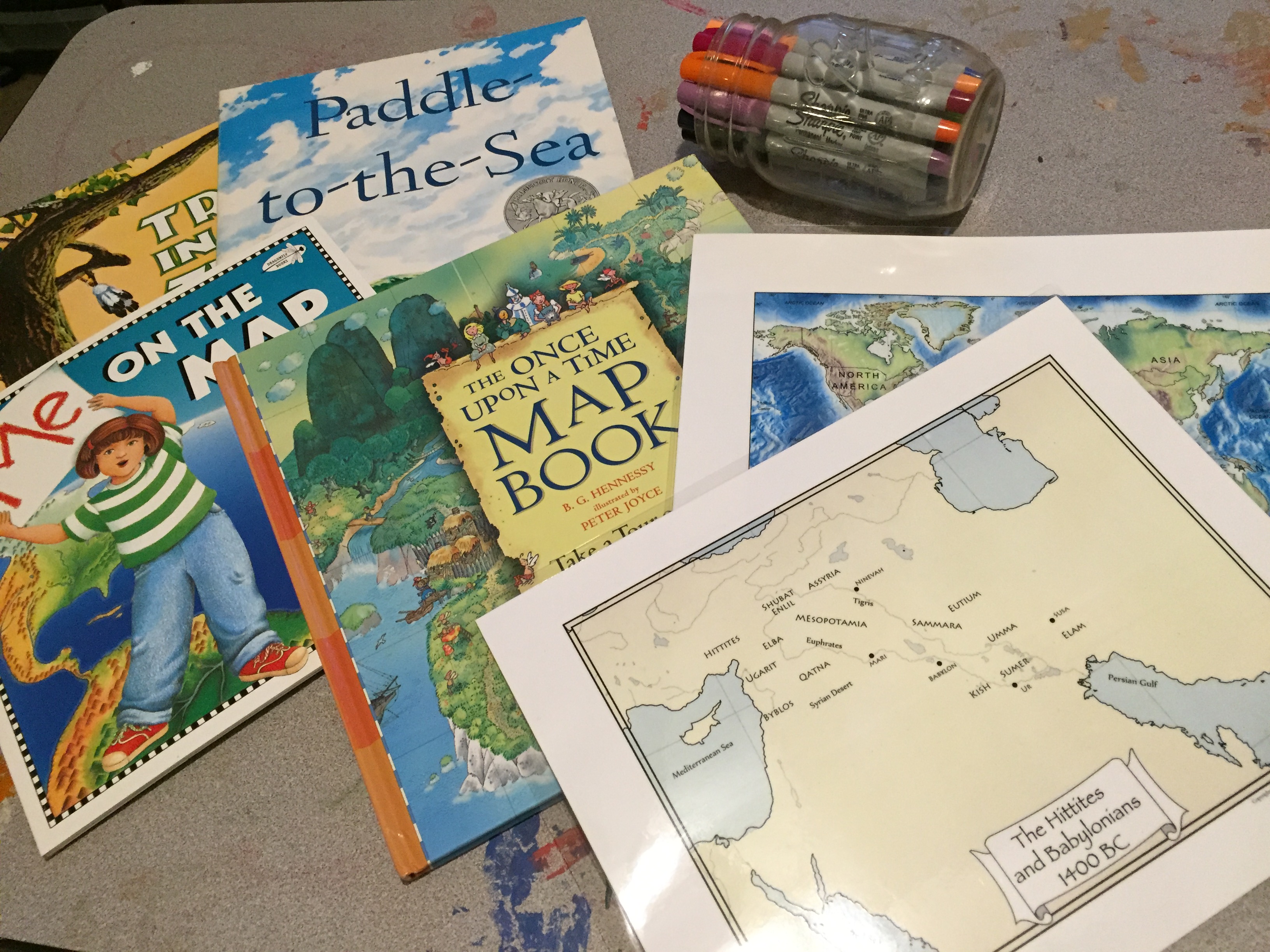
We are using living books for geography concepts and map skills: Me on the Map, The Once Upon a Time Map Book, Paddle to the Sea, and Tree in the Trail. We use WonderMaps that coincide with our Mystery of History lessons for tracing during morning time. I print them off and laminate the ones we will use more than once and the boys use tracing paper and fine point Sharpies to trace the maps while we read or listen to an audio book while I make their breakfast. Maps are one of the best parts of our morning time basket.
Biographies
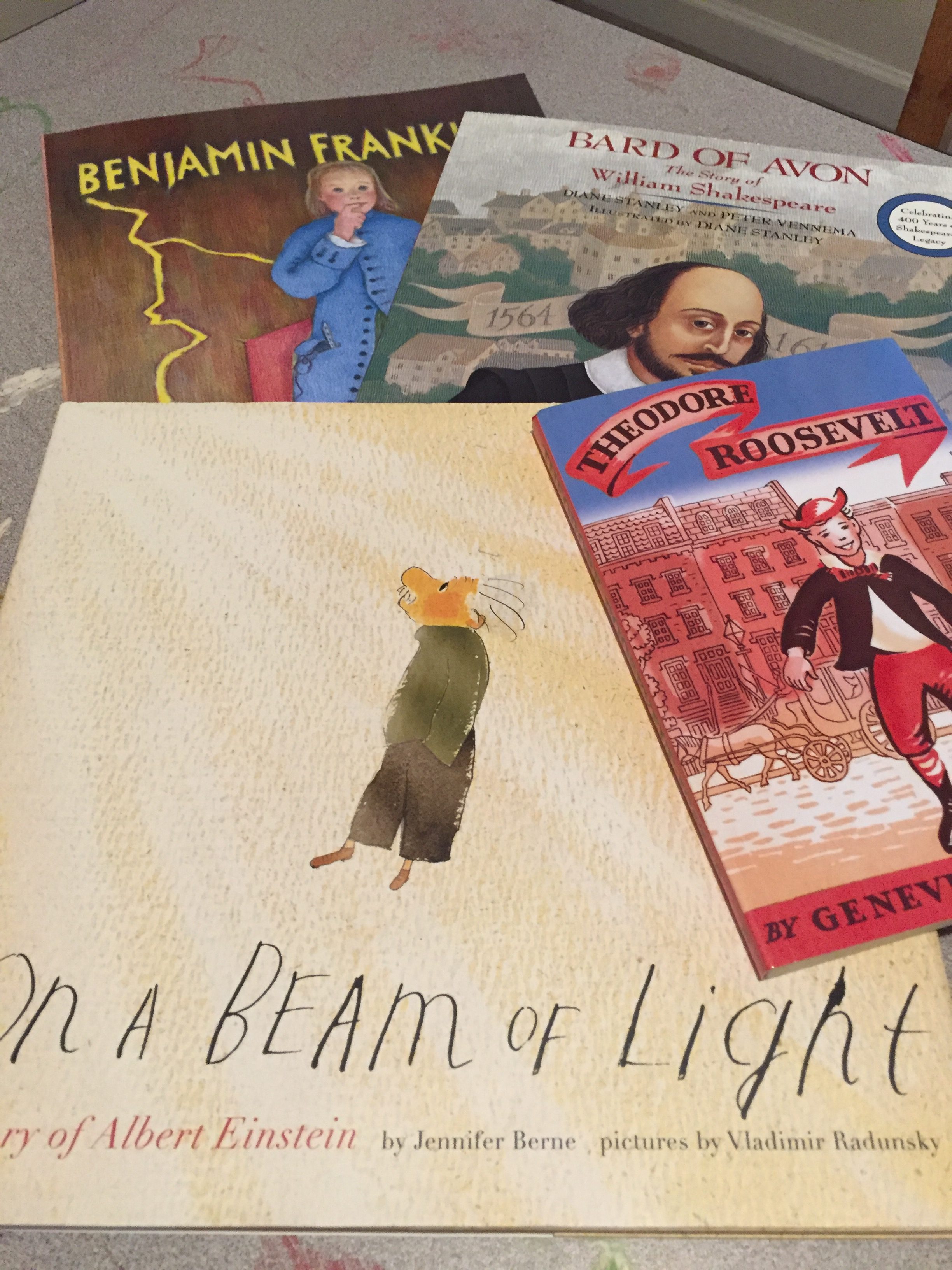
History through biographies is just interesting. Learning about people, what they did, thought, accomplished, dreamed, etc. is like a window into the time in which they lived. Our biographies for homeschool consideration this year are On a Beam of Light, Theodore Roosevelt, The Bard of Avon, and Benjamin Franklin. We have many other biographies of poets, composers, scientists, and missionaries to read together at our leisure, but one good biography per quarter is our goal for this year.
Read Aloud Selections
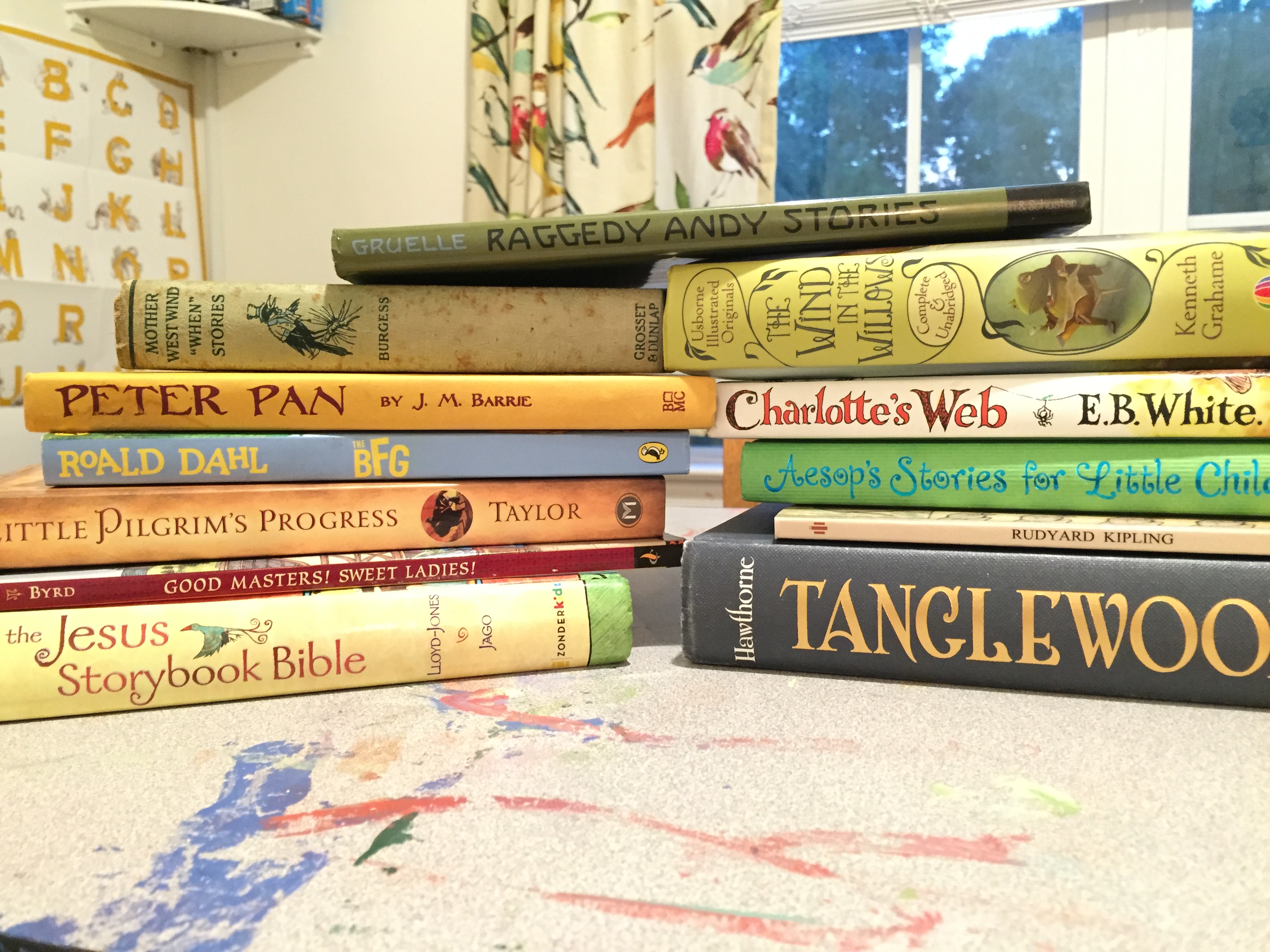
Our read aloud selections need their own post. Suffice it to say that these pictured only account for about half of what we have planned this year. That doesn’t mean we will get all these read, because we are already off-track and reading Ember Falls and Little Sir Galahad. Our intentions are to stick mainly to our list until it is completed.
As a family of literature lovers, that is often easier said than done. We are also huge fans of audio books and we are currently listening to Winnie the Pooh and The Dragon and the Raven. See how we use audios for read aloud time and find out our very favorites!
Handwriting and Copy work
Handwriting is difficult for Mr. T with dysgraphia. Mr. F loves to write. We are using Fundanoodle Upper and Lower case pads, Magnetic Upper and Lower case letters, and Muscle Mover cards with both boys. Mr. T is using a Copybook Reader from Simply Charlotte Mason.
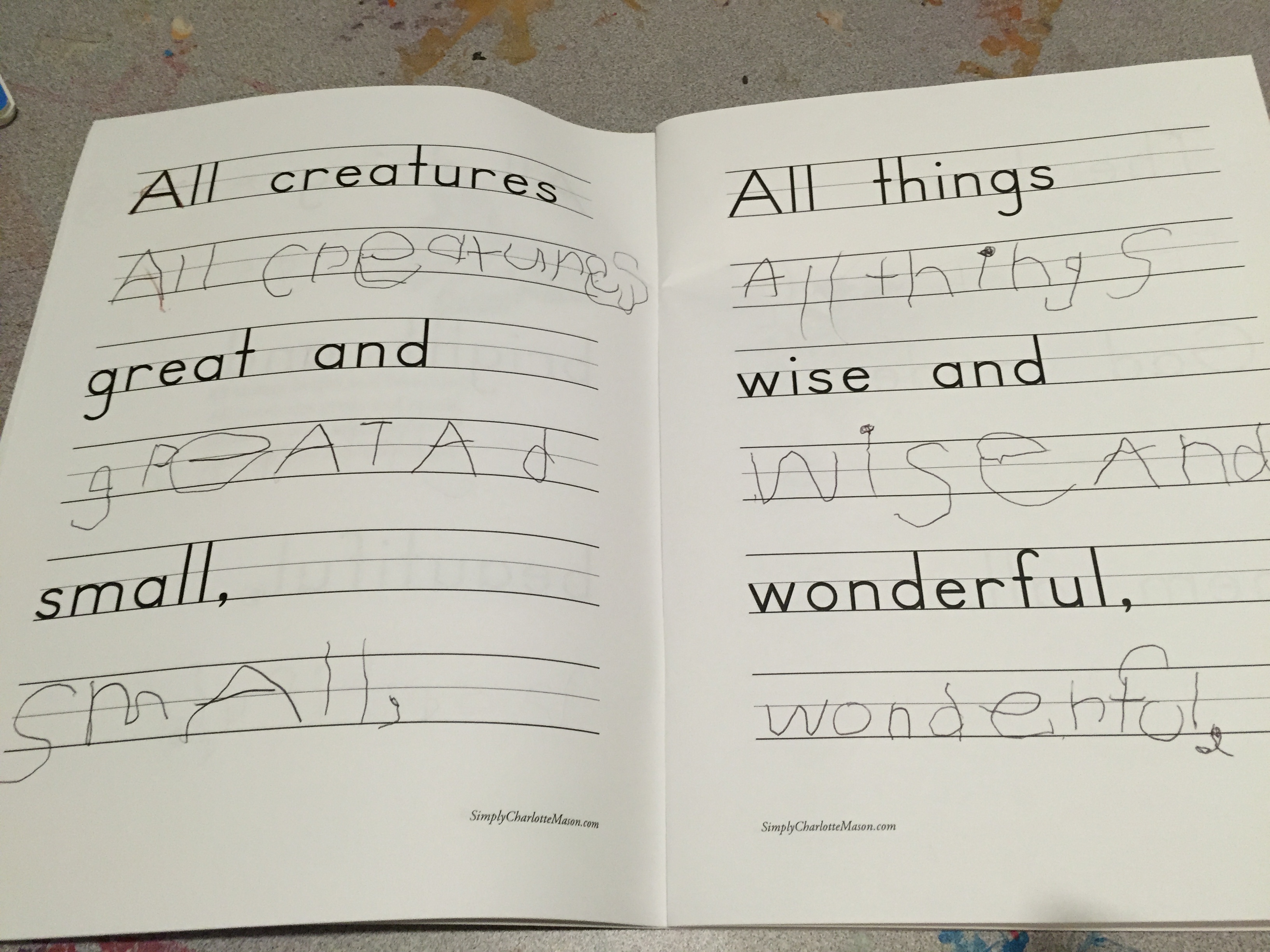
Just as an aside, Mr. T is 6 and has dyspraxia/low muscle tone, dysgraphia, and suspected dyslexia. He’s been working through Fundanoodle products and workbooks for homeschooling for 3 years now and with all that work he is able to write like you see above. I’m so proud of how hard he works and how much progress he has made! Don’t give up looking until you find a curriculum or tool that works for your child!
Music, Composer, and Opera Study
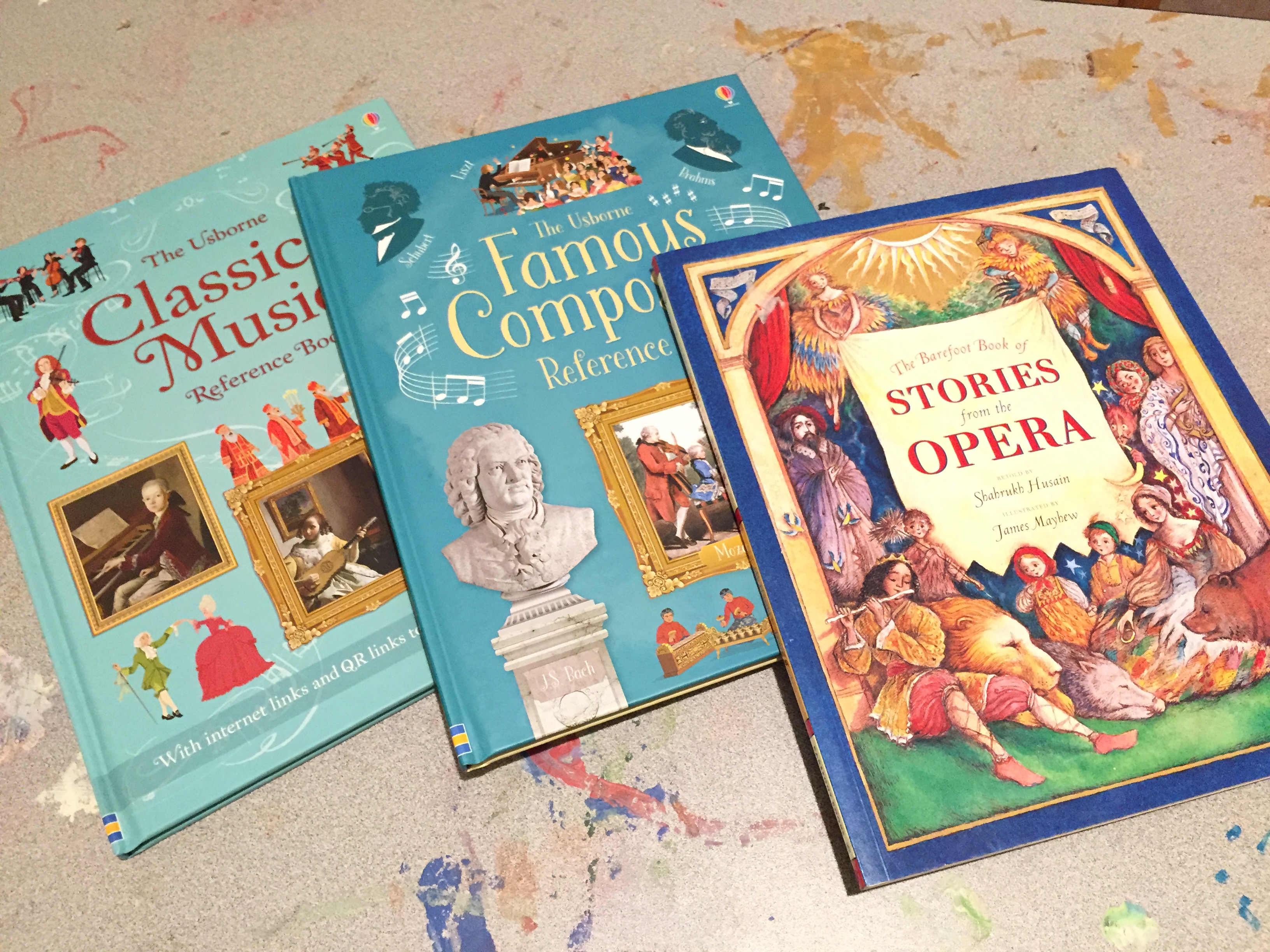
We are using Artist Portfolios from Simply Charlotte Mason for our weekly artist study, SQUILT music appreciation curriculum (Bach spotlight is coming up!), Operas on DVD from The Met, and the books you see here: Classical Music Reference Book, Famous Composers Reference Book, and Stories from the Opera. We are using Mixing with the Masters course for our art projects this semester.
We frequently visit art shows, museums, and musical performances as enrichment. Cultivating a love of beauty is an intrinsic part of our family culture.
French
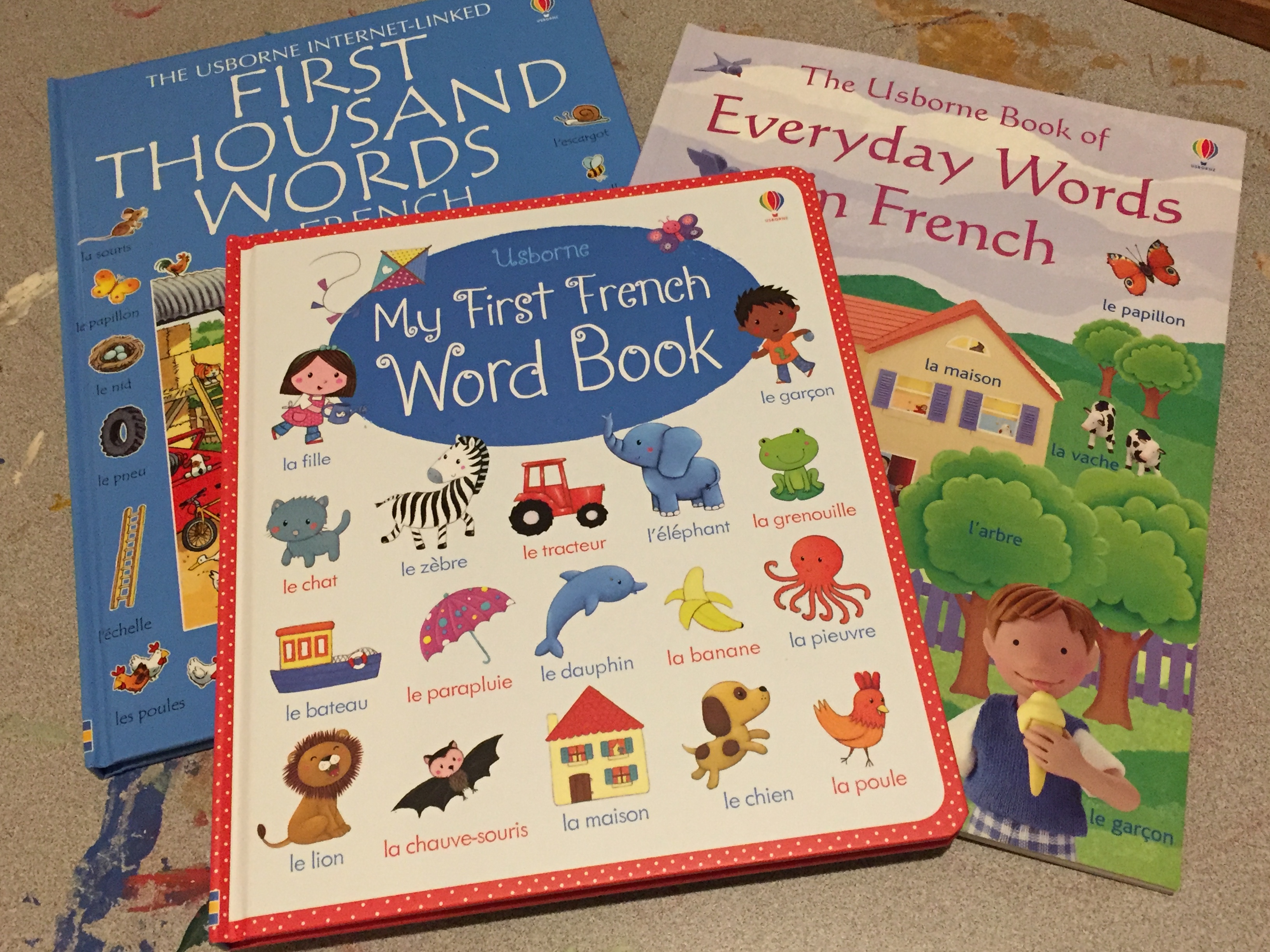
We are using First Thousand Words in French, My First French Word Book, Everyday Words in French, and French Fun DVD to learn vocabulary while we save up for the fantastic Cherrydale Press French program for next semester. I hope to add American Sign Language back into our schooling as well, but we want a program that teaches ASL grammar and not just the signs. I haven’t found one the boys enjoy yet.
History
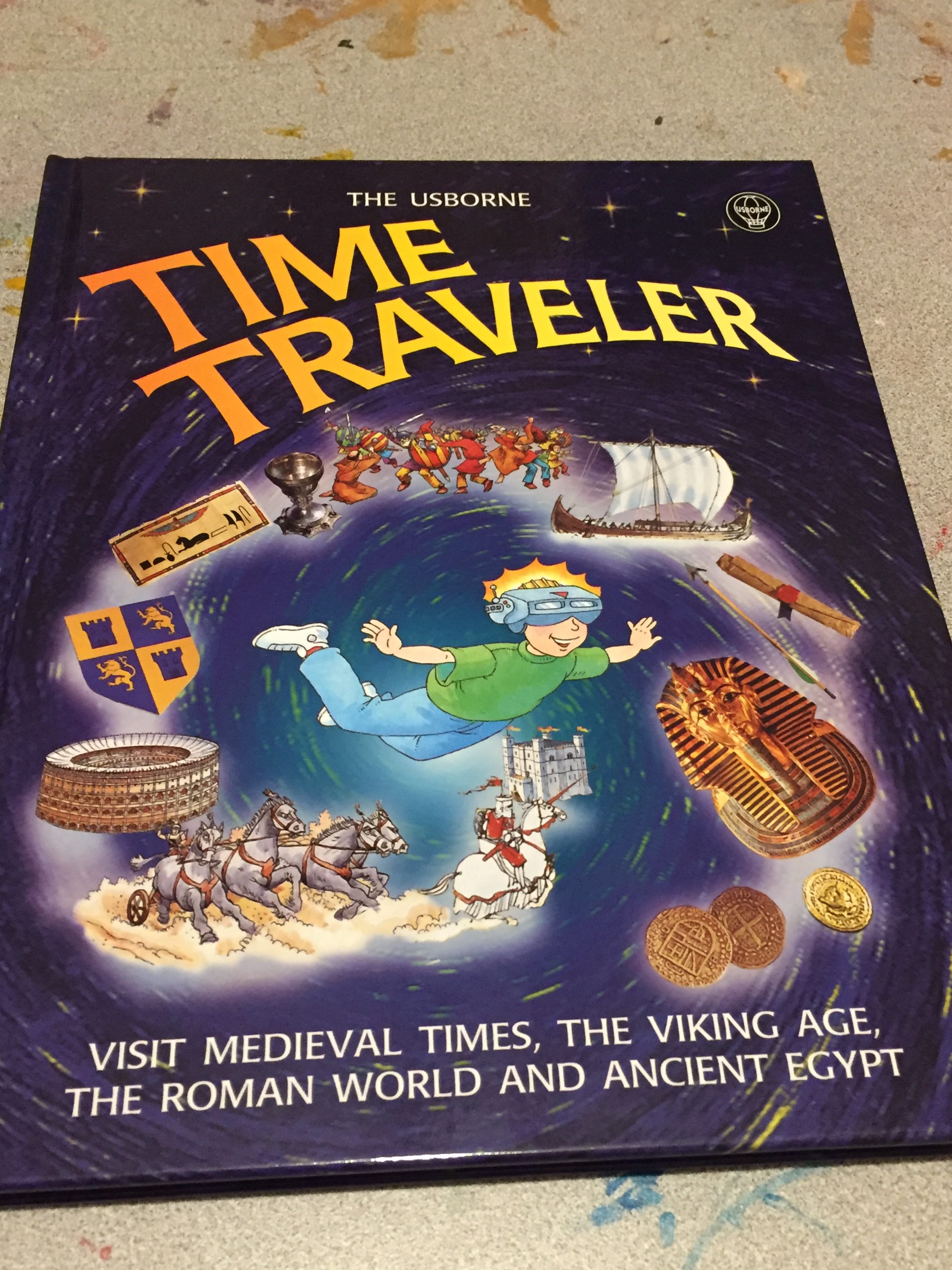
We study history. A lot. Mr. T is a history lover. We’ve spent inordinate amounts of time on medieval life, vikings, ancient times, and several rabbit trails he’s wondered down. Time Traveler is a fun way to learn and when you make your own special glasses, it’s even more interactive.
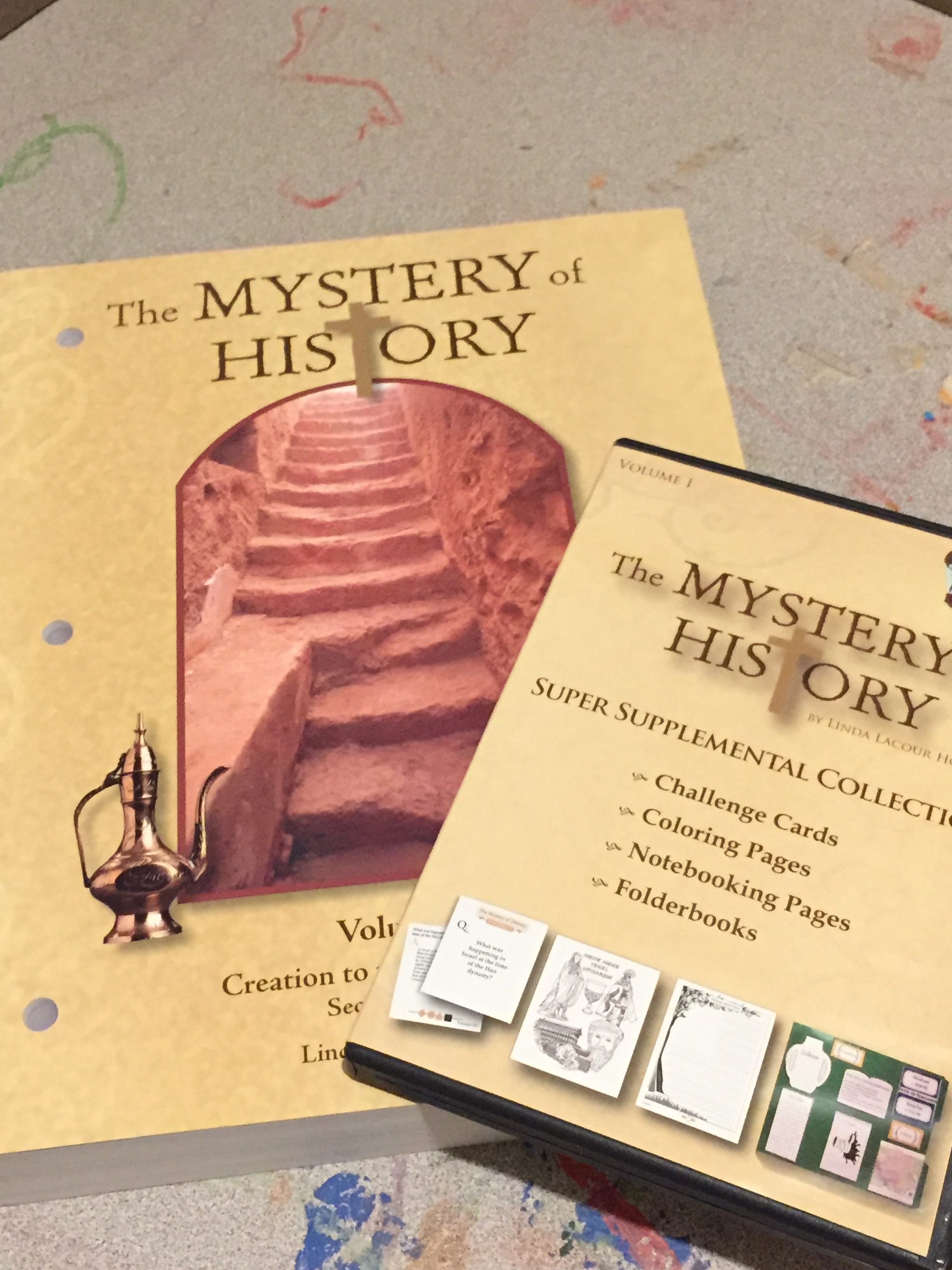
Our core history curriculum this year is Mystery of History Volume 1. The Super Supplemental Collection is such a great investment to go with the text book. Activities and lap books are two of our most common ways to make learning hands-on because that is the method that really helps information stick for us.
Worldview and Bible Study
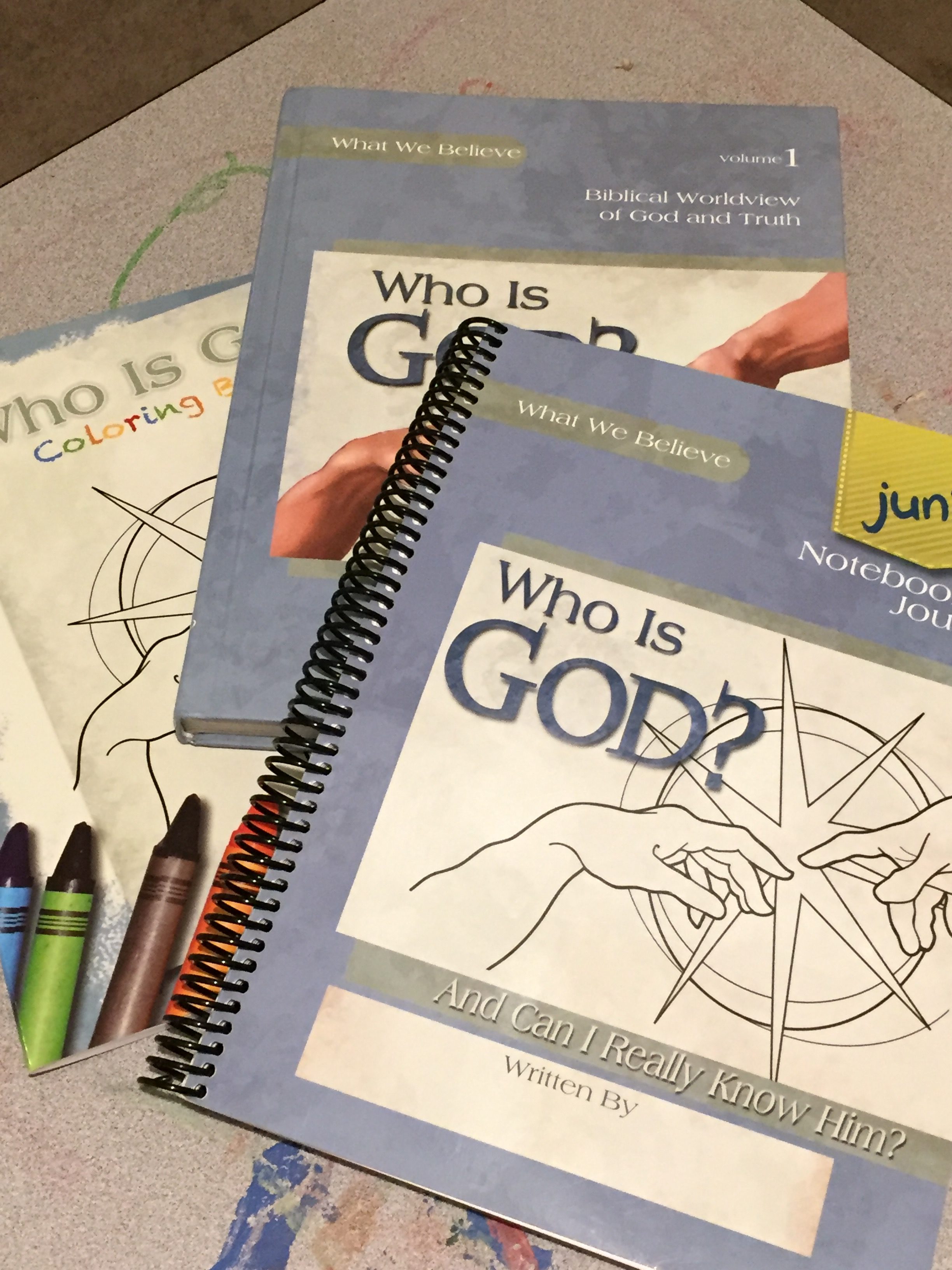
Apologia is known for their excellent science curricula. Did you know they have a worldview series, too? Who is God is our worldview series and we are incorporating it 1-2 times a week. The junior notebook is for Mr. T and the coloring pages are for Mr. F.
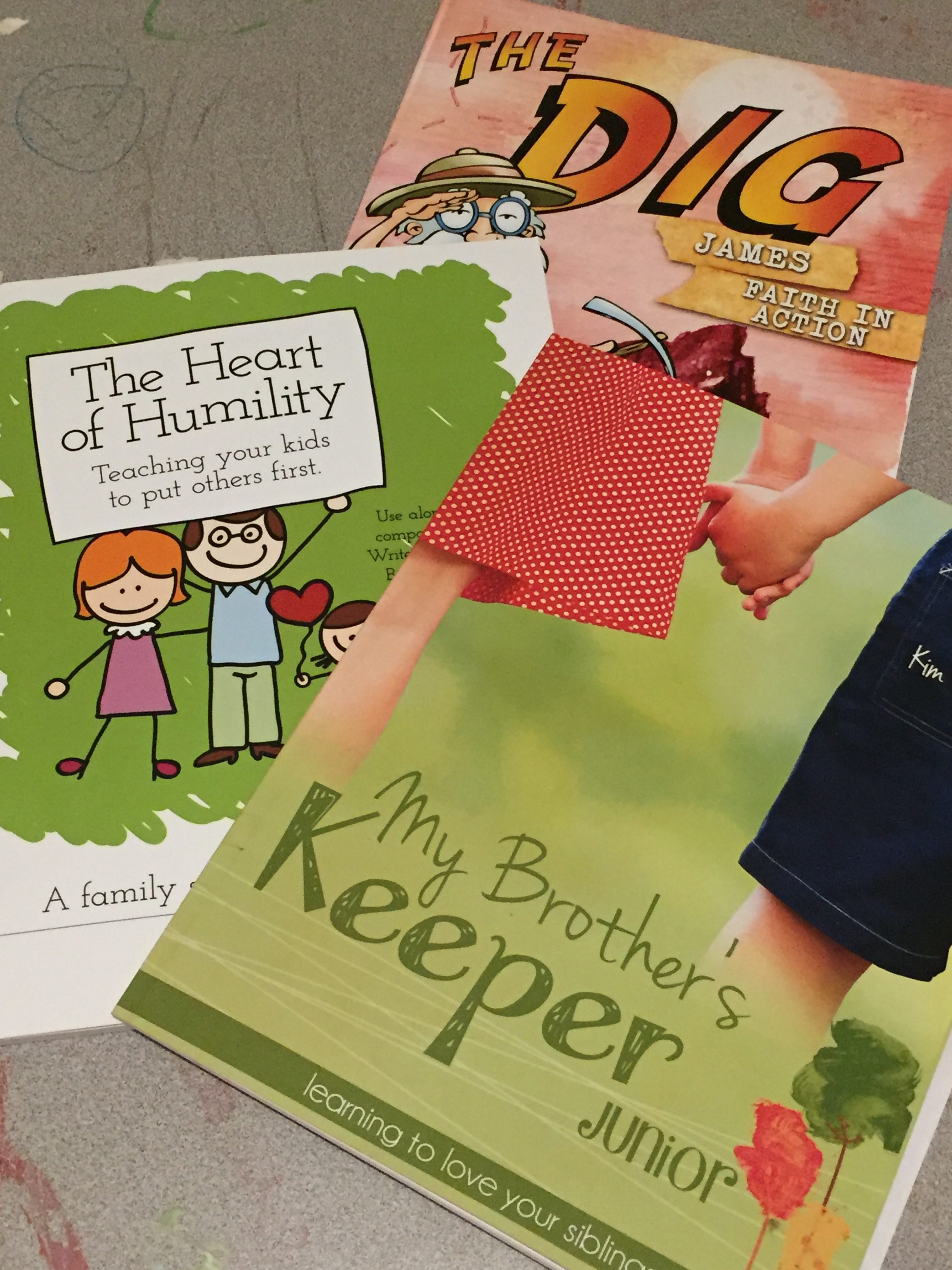
Our Bible studies for this year include My Brother’s Keeper, The Heart of Humility (a family study), and The Dig James. It’s very humbling to be able to have Bible study time with my boys daily. I am so thankful for all I learn with them. Do you have a Bible study time together?
Curriculum and Enrichments
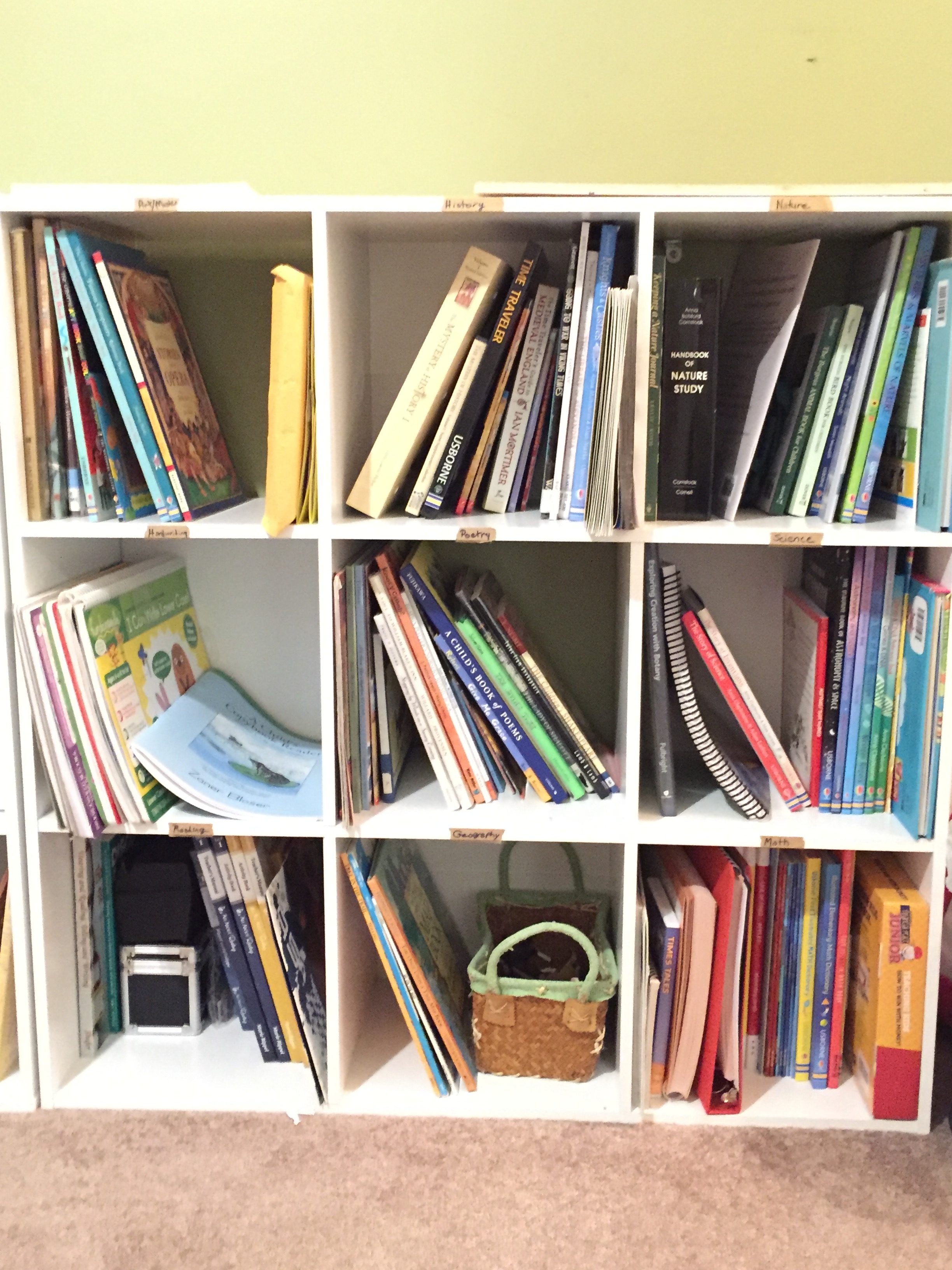
These shelves hold our homeschool curriculum and extras. Lest you should think we are not a household of bibliophiles and bookworms, I’ll also include the rest of our shelves from the school room. There are more throughout the house, but these are the ones we keep in our area of learning. Is there such a thing as too many books? I think not.
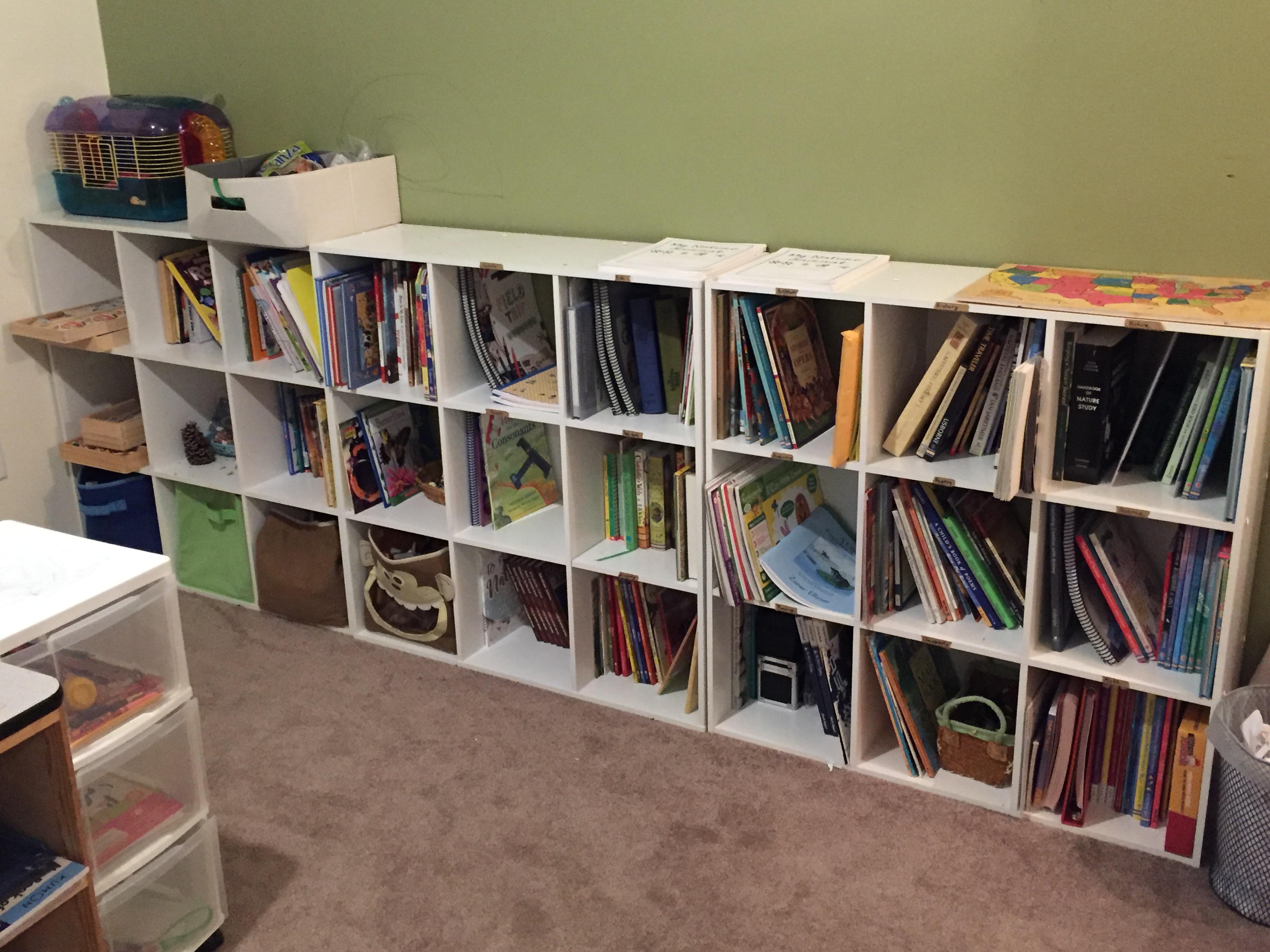
Class Animal for Therapeutic Reasons
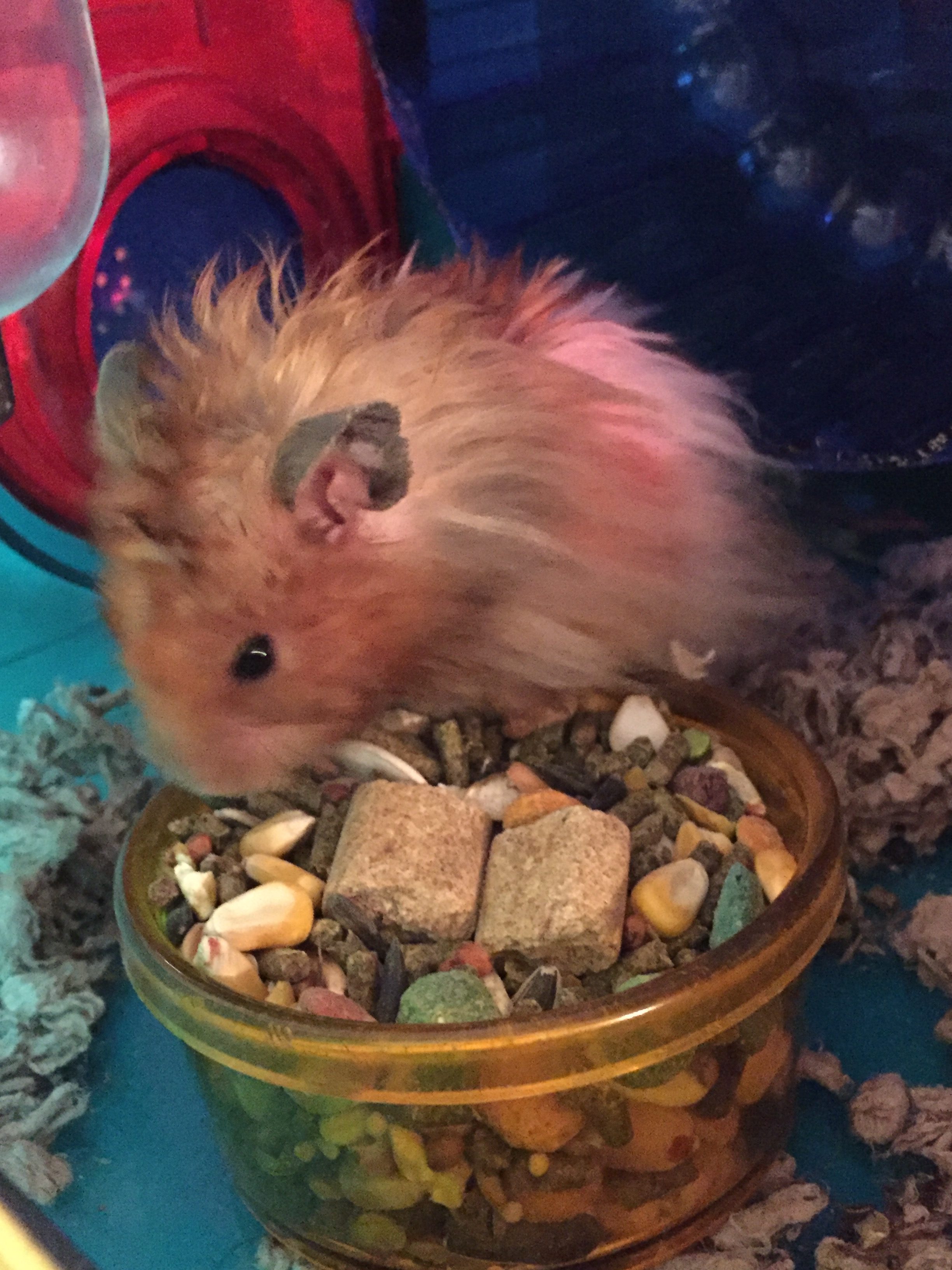
This is Peanut. We love him. He is our Syrian “teddy bear” hamster. You can see him helping Mr. T with a worksheet in this post. We have Peanut as our class pet, but he’s actually part of how I help the boys focus. Sometimes he joins us for table work, sometimes we play with him, sometimes he helps the boys re-center when they become anxious or overwhelmed, and sometimes he helps mom with the same challenges.
If you have a child with ADHD, SPD, emotional intensities, anxiety, etc. then a class animal might be extra beneficial for your homeschool. We are allergic to cats (but not rodents) and to cedar and pine so he gets special recycled paper bedding. Any kind of small animal that allows you to pet it can be helpful for some children.
And that’s our basic curriculum for this year. There are many enrichments, field trips, and hands-on fun scheduled in, too. What is happening in your homeschool this year?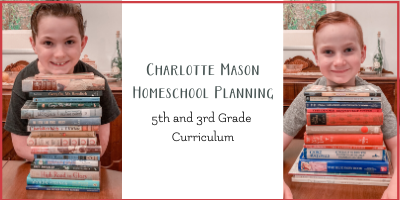
See all the Curriculum posts at iHomeschool Networks Back to Homeschool Blog Hop.

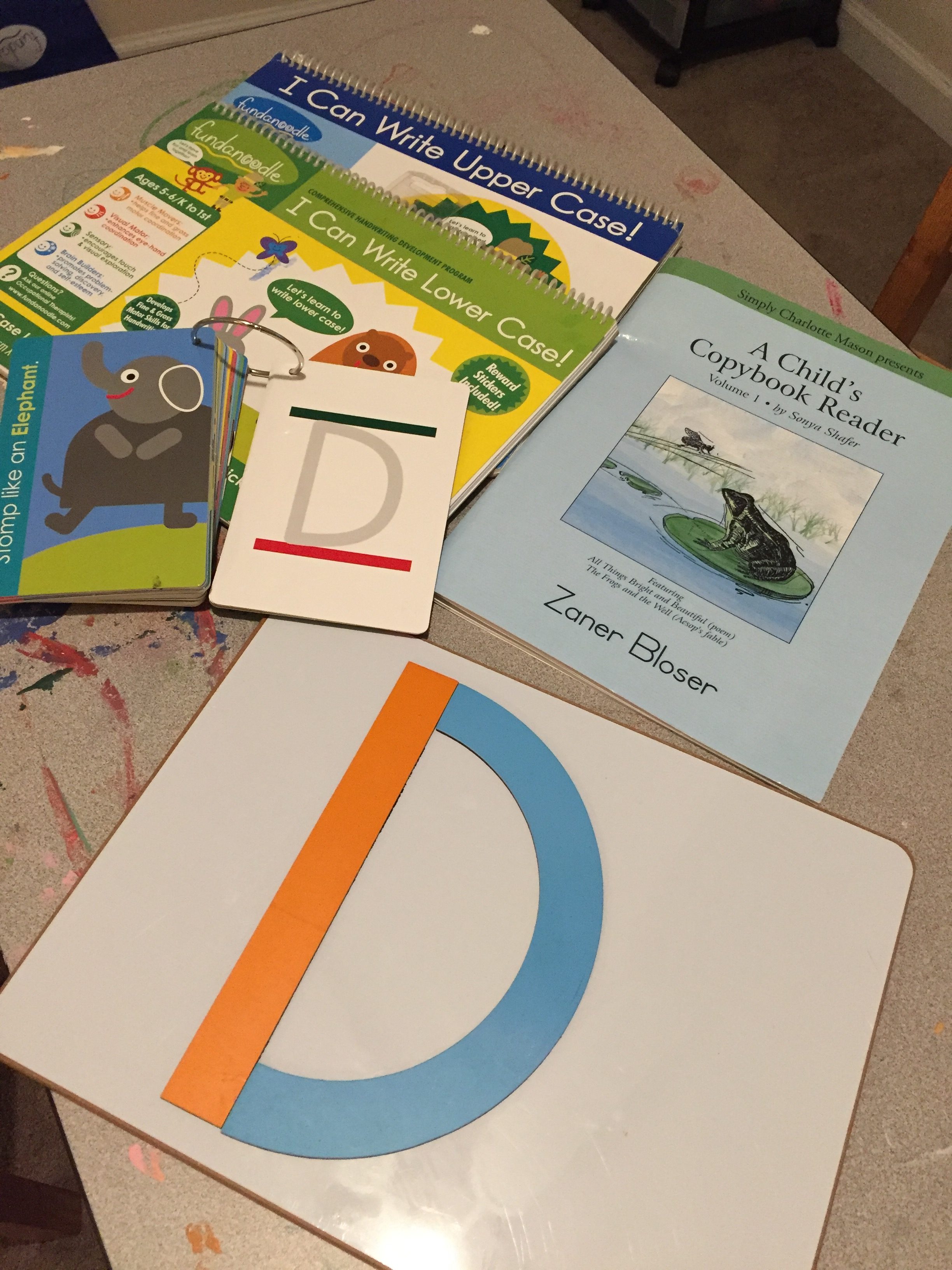
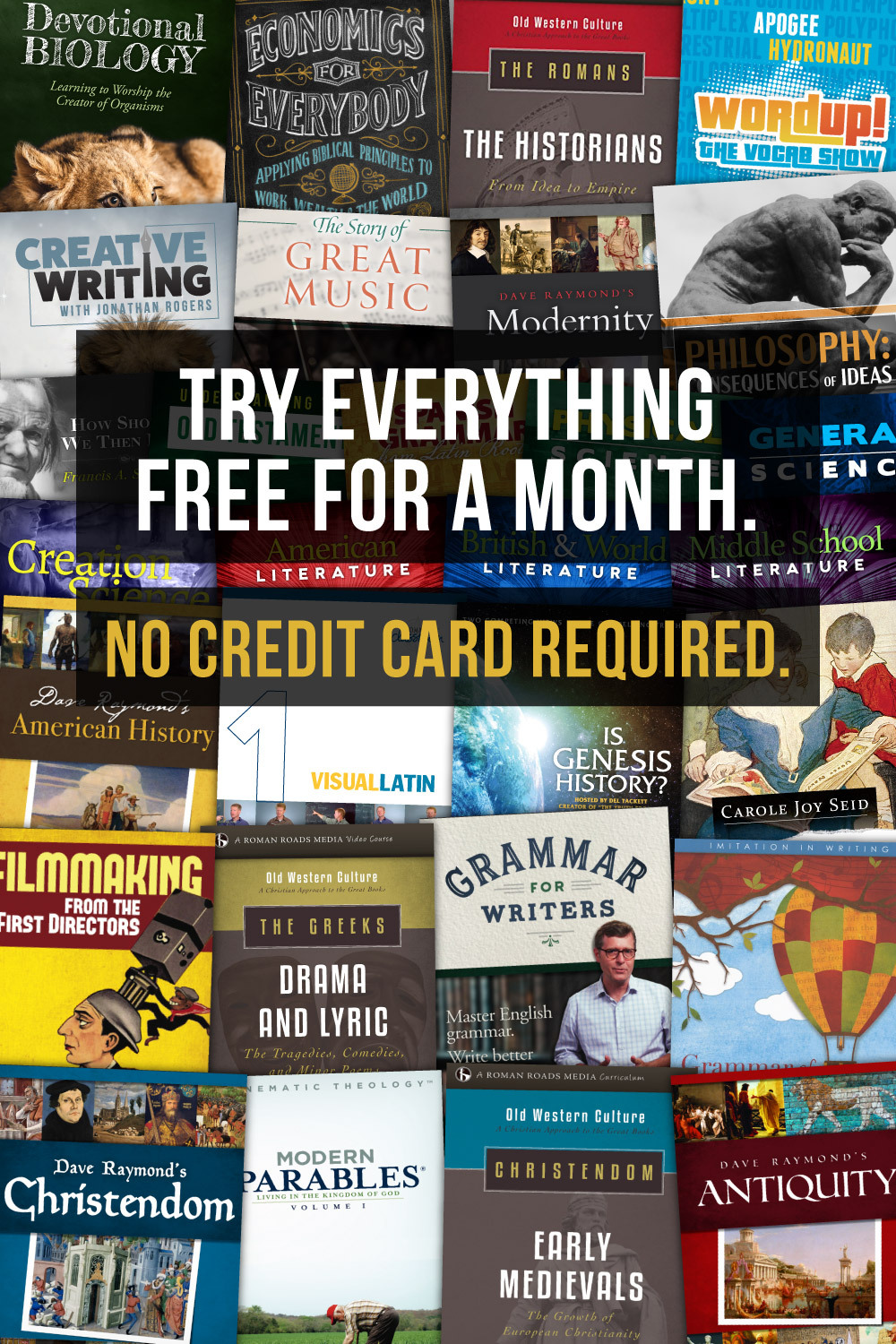
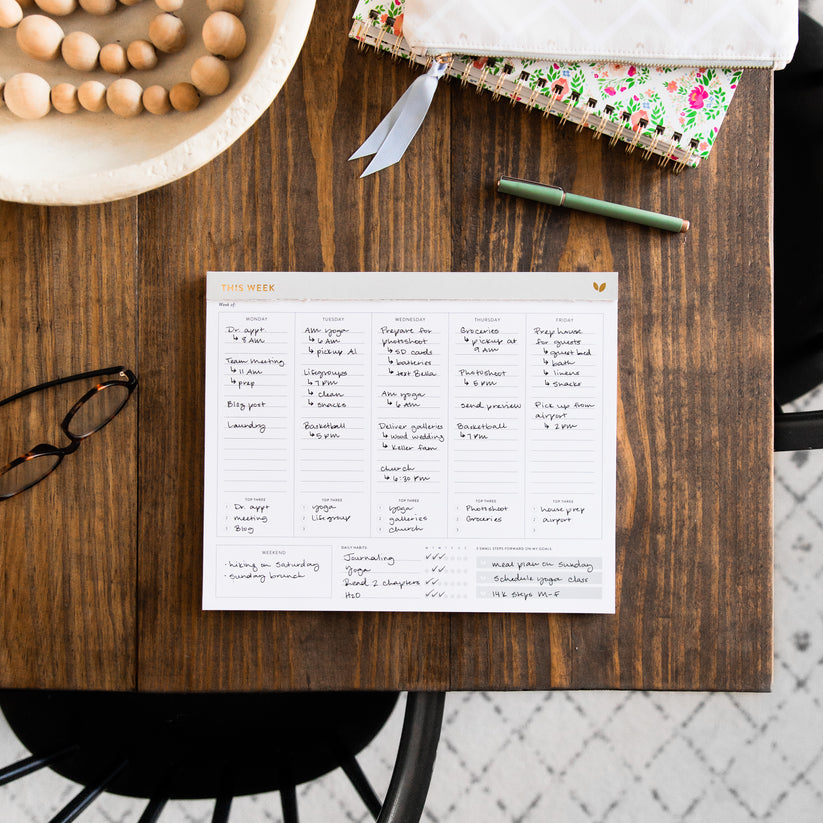
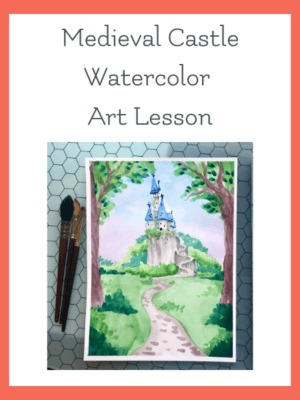
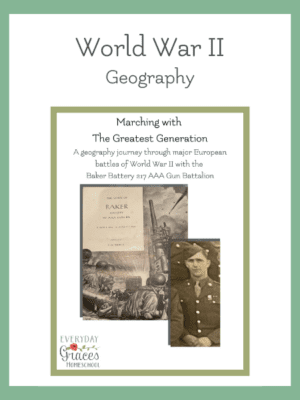
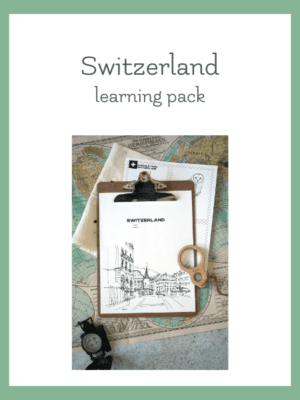
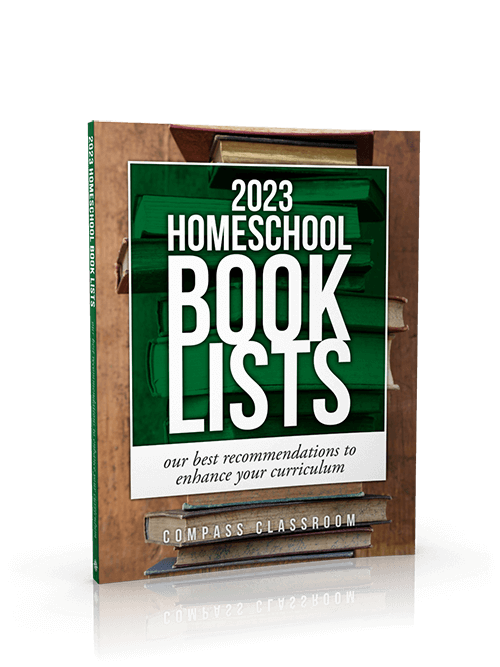
Thanks for the math suggestion. 2E students can be the most challenging. My 7 year old is gifted but also has adhd and tourette which makes lessons challenging. We have decided after much research on Charlotte Mason, I like the short lessons but that are jam packed with things for him to contemplate. I purchased a 1st grade math book (math reasoning) for him this year and he finished it in 6 weeks, so I have been looking for something that will allow moving at his own pace with out breaking my bank. As far as Shakespeare I had read them all (full versions) by third grade and can say kids will only understand what they can understand, I reread them several times over the years and realized it grew into a very different story as I matured.
Oh it seems we are so like-minded with curriculum! I’m also a big fan of Mystery of History and Apologia– you will love them both! Also, aren’t Gyo Fujikawa’s books just the very best?? I recently unearthed several from my own childhood, it’s been a trip down memory lane as I have begun to share them all with my own kiddos now. Too fun 🙂
Yes! Fujikawa’s books are all delightful. We have been fans of MoH for a few years now. I write for Bright Ideas Press, too 🙂 We’ll have to check in later to see how our curriculum is working! Thanks for stopping by!
I love that you are starting a second language so young! I really should start doing that! And we love the Jesus Storybook Bible – we use it during our morning circle time.
That’s one of my most favorite children’s Bible’s ever. We really enjoy how she weaves the importance of Jesus all the way through.
The second language is fun, but we are only just dabbling right now. I figure more serious studies can come later on 🙂
Thank you for sharing. We do our own tweaked Charlotte Mason approach and I enjoy seeing what other mom’s choose. You’ve made some wonderful choices. Hopping over from the “Back-to-School” Blog Hop.
Happy Homeschooling!
Thanks!
I love, love, love Charlotte Mason. We don’t do a complete Charlotte Mason approach, but I think I may shift that way as my kids get a little older. I’m going to pin your post! Thanks so much for sharing!
Thanks for stopping by! I’m glad you found some inspiration here 🙂